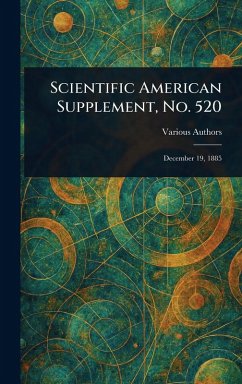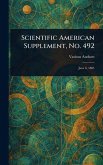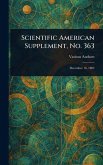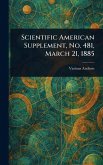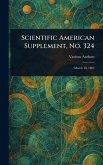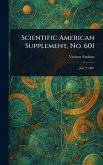Explore the landscape of late 19th-century science and technology with "Scientific American Supplement, No. 520, December 19, 1885." This meticulously reprinted periodical offers a fascinating glimpse into the inventions, discoveries, and scientific thought of the era. A treasure trove of essays and observations from various contributors, this volume captures the spirit of scientific inquiry that shaped the modern world. Delve into a world where scientific advancements were rapidly transforming society. From engineering marvels to groundbreaking research, this issue of "Scientific American Supplement" provides a unique window into the history of science. Discover the prevailing theories, explore emerging technologies, and witness the evolution of scientific understanding as it unfolded. Ideal for anyone interested in the history of science, technology, and the enduring quest for knowledge. This work has been selected by scholars as being culturally important, and is part of the knowledge base of civilization as we know it. This work is in the public domain in the United States of America, and possibly other nations. Within the United States, you may freely copy and distribute this work, as no entity (individual or corporate) has a copyright on the body of the work. Scholars believe, and we concur, that this work is important enough to be preserved, reproduced, and made generally available to the public. We appreciate your support of the preservation process, and thank you for being an important part of keeping this knowledge alive and relevant.
Bitte wählen Sie Ihr Anliegen aus.
Rechnungen
Retourenschein anfordern
Bestellstatus
Storno

